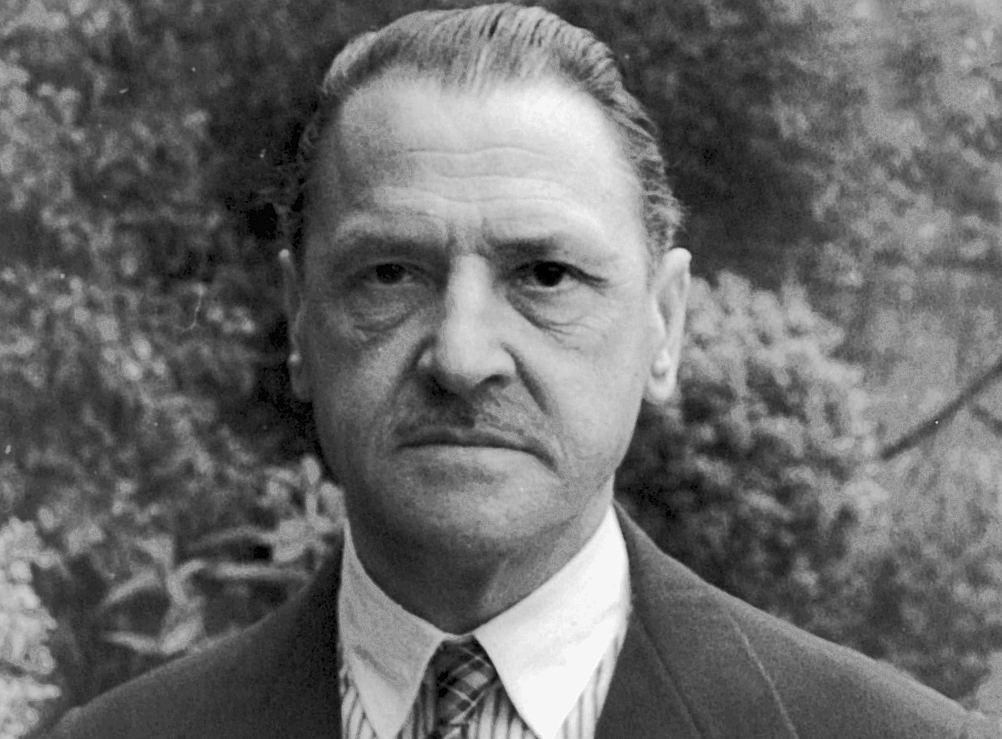
February 08, 2024

W. Somerset Maugham
Source: Public Domain
If it weren’t for Papa Hemingway’s machismo, or Scott Fitzgerald’s lovely prose, Somerset Maugham would have been my favorite writer. And one of the things I most regret is having refused an invitation for lunch at La Mauresque, the great man’s Cap Ferrat Riviera villa, a few years before his death. The invitation had come through an old “queen” by the name of Eric Nielsen, who had been making passes at the poor little Greek boy during the summer months in the South of France. I figured arriving at the Maugham residence accompanied by Eric would have somehow compromised me. I was, after all, in my early 20s. Looking back, I see what a fool I was. The great man was a very good judge of men—and women—and he would have known right off the bat that I didn’t bat on his side.
Never mind. Modern writers say that art begins in a wound, an imperfection. Perhaps that’s why modernists are so unreadable, centers of their own universe, hypertrophies of their egos. I first read Tender Is the Night at 15 years of age, and it remains the incarnation of all my memories. I was reading it in study hall at my boarding school, having flunked math and other subjects after excelling in sports. I had it on my knees, under my desk, as Mister Barrett, a teacher who was not best pleased with my attitude, spotted it. “Is it a dirty book you’ve got there?” as he reached for it. When he saw it was Tender he handed it back and lowered his voice: “Keep reading it.” Good old Fitzgerald had saved me.
I discovered Maugham with The Razor’s Edge. By then I was 17 and looking to the future. Larry Darrell became my hero, along with Dick Diver and Jake Barnes. Darrell’s search for emotional perfection and God through knowledge became mine—but through pleasure. Tennis tournaments, Paris, the Riviera, and Gstaad were good places for research. Books by Maugham, Hemingway, and Fitzgerald were as ubiquitous as dinner jackets, bathing trunks, tennis rackets, and skis. I was among the lucky ones: The gaiety never turned to bitterness, as was the case with many of my playboy buddies. The books helped keep me on my toes.
A week ago I turned on the idiot box and watched The Razor’s Edge starring Tyrone Power as Larry. Power was perfect in the role, being extremely handsome, and with a kind and intelligent look, enigmatic but luminous. The film sure brought back memories. I had met the actor while he was appearing in a one-act play on Broadway, and I was tripping the light fantastic with his ex-wife Linda Christian. I was 21 and Power was in his early 40s, but he took the time to discuss Darrell and Maugham and the making of the film. (Power died of a heart attack the next year.)
Maugham’s short stories were among the best ever written. Prudish missionaries, fallen women, spoiled-rich bored ladies, secretly honorable but flashy playboys, defrocked priests, and society bores were his forte. He traveled nonstop and knew the world like no one else. He understood his characters’ humanity, never putting them in black-and-white boxes. The power of his works derived from psychological insight, and like Papa and Scott, Maugham expressed his characters through conversation more than action. “The Letter” is a wonder, with three films made of his short story, the best being the one with Bette Davis.
Unlike Maugham, who came from a privileged background, Scott Fitzgerald was at times naive, especially about wealth. The upstart Gatsby pursues his Daisy while self-conscious of recent wealth, arrivistes posing as aristocrats. In a socially fluid America, new wealth had to be guarded against the next wave of gate-crashers. Tom Buchanan’s complaint that “civilization’s going to pieces…. If we don’t look out the white race will be submerged” reminds me of my own recent cries, not that I have anything else in common with ghastly old Tom.
Good old Scott portrays Buchanan’s wealth as the worst possible kind, for it comes without the usual obligations and duties that Scott believed distinguished old money from new. Hollywood has tried time and again to film Fitzgerald’s epics but has failed every single time to even approach his psychological insights. The closest Tinseltown ever got was an old black-and-white Gatsby starring Alan Ladd, whose enigmatic “Shane” demeanor and mien made later Gatsbys look like impostors.
Papa, needless to say, never approved of a single movie made of any of his works and insulted every movie man he ever met as a result. But I thought The Short Happy Life of Francis Macomber and The Snows of Kilimanjaro were not only good interpretations of Papa’s short stories, but the heroes reflected the author. When Papa finished A Moveable Feast he wrote: “After writing a story I was always empty and both sad and happy, as though I had made love, and I was sure this was a very good story although I would not know truly how good until I read it over the next day.”
Good old Papa, writing well is like making love, and it does have the same aftereffect. Papa, Scott, and Mister Maugham, you’re the best ever.